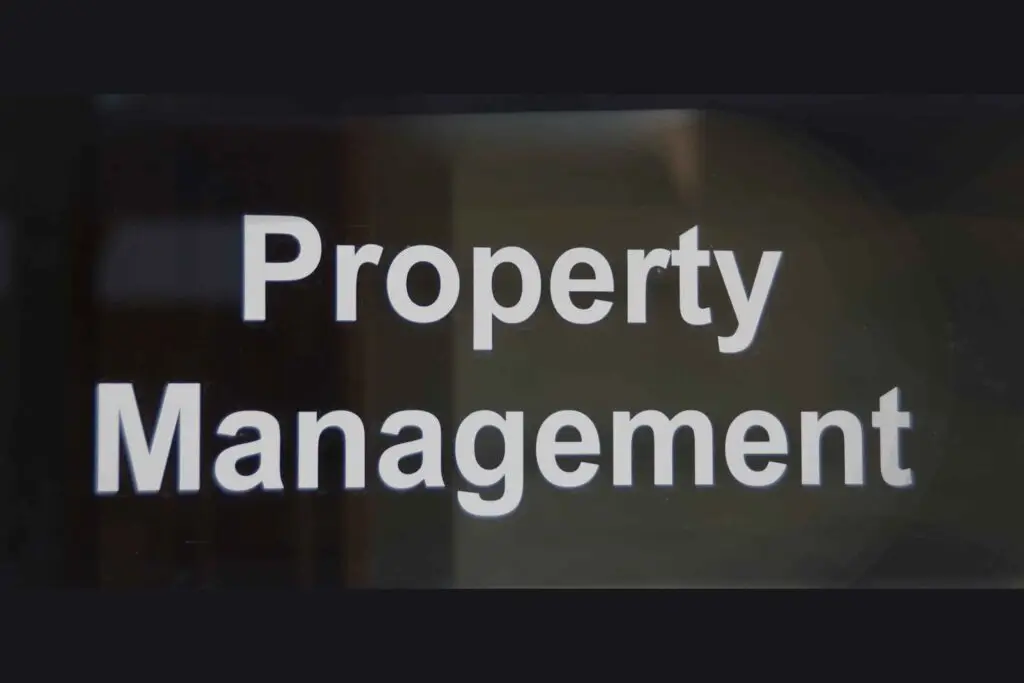Did you know?
Your property sale value, regardless of profit or loss, can evade capital gains tax.
In 2024, the real estate investment market is expected to offer excellent opportunities to benefit from the 1031 Exchange Real Estate tax break from the US Internal Revenue Code. This tax break allows you to buy, sell, or exchange properties without paying taxes for them. However, to qualify for this mechanism, both the relinquished property being sold and the replacement property being acquired must be similar within the United States.
By combining your 1031 Exchange properties with a Texas LLC or a trust, it is possible to reduce liabilities and protect your assets.
Imagine being able to sell a property and avoid paying capital gains tax, no matter the outcome. With the 1031 Exchange Real Estate tax break from the US Internal Revenue Code, you can buy, sell, or exchange properties without paying taxes for them. The real estate investment market is expected to offer excellent opportunities in 2024 to take advantage of this tax break. To qualify for this mechanism, both the relinquished property being sold and the replacement property being acquired must be similar within the United States. You can potentially reduce liabilities and protect your assets by combining your 1031 Exchange properties with a Texas LLC or a trust.
Overview of 1031 Exchanges
A 1031 exchange, which is also called a like-kind exchange, is a useful tool for real estate investors to keep their profits exclusively. It is only applicable to real estate properties that are held for investment or productive use in a trade or business. According to IRC section 1031, this exchange is valid only if the time frame is followed, and the real estate property is similar. This makes it an adaptable tool for investors to postpone taxes and reinvest their gains in new properties.
To register with the IRS for exchange benefits, qualified personnel need to submit Form 8824 along with tax return documents for the year of exchange.
NOTE: The 1031 Exchange Rules are non-applicable for vacation properties.
Noteworthy 1031 Exchange Rules –
- A 1031 exchange is a tax break
- Prevent capital gain tax on sale for similar exchange of properties under the tax break
- Third-party is responsible for the sales proceedings
- IRS consideration for the exchange of similar properties is the primary
- There are no limits to the frequency of 1031 Exchange for properties if done correctly
- There are special rules for depreciable properties
- Time limit and rules for 45 days and 180 days for similar property transaction
- 1031 Exchange for Real Estate Business Planning
Overview of Trusts

There are various types of trusts available in the real estate market.
- Revocable Trusts: This trust allows investors to maintain control over their assets while they are alive and simplifies the transfer of assets without the need for probate after their passing.
- Irrevocable Trust: Once established, this trust cannot be easily changed or revoked. It offers significant asset protection and estate tax benefits.
- Land Trust: This trust is specifically designed for holding real estate. It offers privacy of ownership and can simplify the process of transferring property.
- Real Estate Investment Trust (REIT): While not a trust in the traditional sense of estate planning, REITs allow investors to pool their money to invest in real estate ventures. They offer liquidity and income through dividends.
- Dynasty Trust: This long-term trust is designed to pass wealth from generation to generation without incurring transfer taxes like estate and gift taxes.”
When dealing with complex legal matters that could either result in benefits or fines, it is crucial to seek guidance from an expert. In a trust party, there are typically three members – the trustee, beneficiary, and grantor. However, there are also dynamic trusts that allow one person to assume all three roles.
Overview of Texas LLC Series
Register the LLC name, appoint a certified agent, write the agreement of operations, file an individual formation certificate, get an EIN, file a business BOI report, and submit annual franchise tax to start a Texas LLC Series. It only takes to fill out one online form to begin. Based on the US Treasury regulations, a registered LLC under §301.7701-(3)(b)(1) is non-applicable for tax reporting on any sales of similar real estate property.
To start a Texas LLC Series, you need to complete a few steps. Firstly, register an account with the Secretary of State of Texas Business Corporation webpage at https://www.sos.state.tx.us/corp/.
Next, you need to appoint a certified agent and draft an agreement of operations. Then, file an individual formation certificate and obtain an Employer Identification Number (EIN) from the IRS by visiting https://sa.www4.irs.gov/modiein/individual/index.jsp.
Starting January 2024, all registered corporations in the US must register with the treasury by filling out one online form. According to the US Treasury regulations, a registered LLC under §301.7701-(3)(b)(1) is not required to report taxes on any sales of similar real estate property. For more information, visit https://www.fincen.gov/boi.
Finally, every LLC registered in Texas must submit annual franchise tax reports ending in December of the same year. To begin, visit https://www.sos.state.tx.us/corp/ and set up your online franchise tax reporting account.
Benefits of Texas 1031 Exchange for Properties
- Non-Recourse Loans
- Minimal or No Risks
- Increased amount of Cash Flow
- Diversification
- Access to Bigger and Better Properties
Texas LLC 1031 Exchange Properties Types
- Simultaneous Swap
- Deferred Exchanges
- Reverse Exchange
Relation of Trusts and Texas LLC Series To 1031 Exchange

Trusts Eligibility
Real estate investors must carefully select between a revocable trust, a land trust, or an irrevocable trust to ensure eligibility. This is because choosing the right trust can prevent any unauthorized passing of probate to beneficiaries. Therefore, it is crucial to choose the right trust to avoid any unnecessary complications.
Eligibility for Texas LLC Series
Land and properties such as buildings, homes, factories, and oil fields in Texas are eligible for a tax break through the 1031 exchange. These properties can be exchanged according to the IRC. If you are an investment owner and hold business property as an LLC or individual, you can take advantage of Section 1031 to receive tax benefits as long as you have a proper real estate business plan.
Benefits of 1031 Exchange in the Real Estate Investment Market
A 1031 exchange for real estate properties under trusts or LLCs in Texas gets the following benefits –
- Prevent unnecessary and hidden court fees
- Prevent beneficiary probate passing without authority
- Protect assets
- Reduce liabilities
- Save from capital gains tax
- Evade unnecessary jurisdiction
- Transact hassle-free
- Be aware of the 1031 Exchange rules for properties
7 Essential Tips for Mastering 1031 Exchanges with Trusts and Texas LLC Series

Tip 1: Ensure Eligibility
Verify that the relinquished and replacement properties meet the “like-kind” requirement and are intended for investment or use in a business.
Tip 2: Utilize a Qualified Intermediary (QI)
Engage a QI to facilitate the exchange. The QI holds the sale proceeds to prevent constructive receipt by the investor, an essential requirement for a valid exchange.
Tip 3: Understand Timing Restrictions
Be mindful of the strict timelines—the 45-day identification period for potential replacement properties and the 180-day deadline to complete the exchange from the sale date of the relinquished property.
Tip 4: Choose the Right Type of Trust
Determine if a Revocable or Irrevocable Trust is more suited to your 1031 exchange strategy, considering the impact on control over the property and the exchange process.
Tip 5: Leverage the Flexibility of Texas LLC Series
Use the Texas LLC Series to segregate different property investments, minimizing risk and potentially simplifying the exchange process.
Tip 6: Keep Accurate Records
Maintain meticulous records of all transactions, timelines, and communications related to your 1031 exchange and trust or LLC Series agreements to ensure compliance and facilitate future exchanges.
Tip 7: Consult with Experts
Engage with tax advisors, attorneys, and real estate professionals who specialize in 1031 exchanges and the use of Trusts and Texas LLC Series to navigate the complexities of these strategies.
To Conclude

Integrating 1031 exchanges with trusts and LLCs can be a highly beneficial strategy for real estate investors who aim to defer taxes, safeguard their assets, and plan for the future. Nevertheless, due to the complexity of these arrangements, it is crucial to engage in careful planning and seek guidance from professionals specializing in tax law, estate planning, and real estate investments. With proper consideration and expert advice, investors can effectively utilize these tools to achieve their financial goals while navigating the intricate landscape of real estate investment and tax regulations.
Real estate investors are currently experiencing a promising season. If you are a registered LLC in Texas, you can get tax benefits and save money while successfully conducting property evaluation, registration, and exchange. You can contact us to discuss how our money-saving real estate business plans can help you maximize your savings and ROI journey. Click here for more information.
Disclaimer
This article, “7 Essential Tips for Mastering 1031 Exchanges with Trusts and Texas LLC Series,” is an educational resource and should not be construed as legal, financial, or tax advice. We strongly recommend accredited and non-accredited investors consult a qualified professional, such as a CPA or tax attorney, for personalized guidance. This article does not guarantee the success of any investment strategy or promise any particular outcomes. By using this information, you acknowledge and agree that neither the authors nor the publisher can be held responsible for any losses, damages, or disadvantages that arise from your decision to act on this information without proper professional guidance.
LEARN TO INVEST WITH US.
We accept queries from accredited domestic and foreign investors seeking single and small multifamily investment opportunities.












